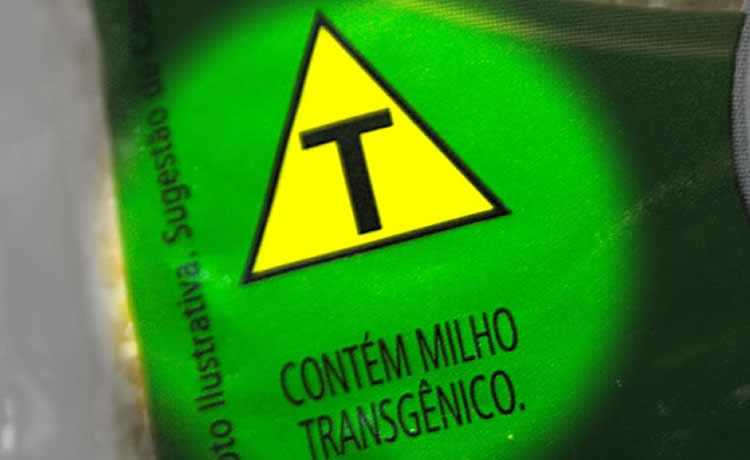What is flexitarianism?
Flexitarianism proposes a reduction in the consumption of animal products, which provides benefits for health and the environment

Edited and resized image by Adalia Botha is available on Unsplash
Created by nutritionist Dawn Jackson Blatner, flexitarianism is a lifestyle that encourages a reduction in the consumption of animal products, with an increase in the intake of vegetables prepared in a healthy way. The objective is to provide benefits for health and the environment. The name of this diet is a combination of the words flexible and vegetarian.
- Vegan philosophy: know and ask your questions
Vegetarians eliminate meat and sometimes other animal foods from the diet, while vegans completely restrict meat, fish, eggs, dairy, all animal-derived food products that have been cruelly tested on animals, such as shampoos, remedies, creams and other cosmetics.
As flexitarians consume animal products, they are not considered vegetarian or vegan. But this could be a middle way. The flexitarian diet has no clear rules or recommended numbers of calories and macronutrients. In fact, it's more of a lifestyle than a diet.
- Veganism is the most effective way to save the world, experts say
It is based on the following principles:
- Eat mostly fruits, vegetables, legumes and whole grains;
- Focus on plant proteins rather than those of animal origin;
- If you're going to eat meat of animal origin, don't do it every day;
- Eat the least processed and natural form of food;
- Limit on adding sugar and sweets.
- What are the benefits of eating fruit?
Due to its flexible nature and focus on what to include rather than restrict, flexitarianism is a popular choice for people looking to eat healthier and more. ecofriendly.
The creator of flexitarianism, Dawn Jackson Blatner, explains how to get started by incorporating certain amounts of meat each week.
However, it is not necessary to follow their specific recommendations to start eating flexitarianly. Some people may consume less animal products than others. Overall, the goal is to eat more nutritious plant foods and less meat.
Possible health benefits
Eating flexitarianly can provide several health benefits (see study on this: 1). However, as there is no clear definition of this lifestyle, it is difficult to assess whether and how the researched benefits of other plant-based diets apply to flexitarianism.
However, research on vegan and vegetarian diets is still useful in highlighting how semi-vegetarian diets can be good for your health.
It seems to be important to eat mostly fruits, vegetables, whole grains and other minimally processed whole foods in order to reap the health benefits of plant-based eating.
- What are fresh, processed and ultra-processed foods
Reducing meat consumption and continuing to eat refined foods with a lot of added sugar and salt will not result in the same benefits (see study about it here: 2).
Heart disease
Diets high in fiber and healthy fats are good for heart health (see study about it here: 3). A study of 45,000 people over the age of 11 found that vegetarians had a 32 percent lower risk of developing heart disease compared to non-vegetarians. This is likely due to the fact that vegetarian diets are often high in fiber and antioxidants, which can lower blood pressure and increase good cholesterol.
- High blood pressure: symptoms, causes and treatment
- Does altered cholesterol have symptoms? Know what it is and how to prevent it
- Fiber-rich foods fight diabetes and high cholesterol
An analysis of 32 studies of the effect of vegetarian diets on blood pressure showed that vegetarians had an average systolic blood pressure nearly seven points lower than meat eaters. But since these studies looked at strictly vegetarian diets, it is difficult to assess whether the practice of flexitarianism would have the same effect on blood pressure and the risk of heart disease.
Weight loss
Joining flexitarianism can help those seeking to reduce their waist circumference for health reasons. This is partly because flexitarians limit their consumption of processed, high-calorie foods by consuming more plant foods that are naturally lower in calories instead.
- What are fresh, processed and ultra-processed foods
Studies have shown that people who follow a plant-based diet can lose more weight than those who don't (see studies here: 6, 7). A review of studies done with more than 1,100 people found that those who adhered to the vegetarian diet for 18 weeks lost 2 kg more than those who did not.
This and other studies also show that those who follow vegan diets tend to lose more weight, compared to vegetarians and omnivores (see studies here: 6 , 7 ). As flexitarianism is closer to a vegetarian than a vegan diet, it may help with weight loss, but possibly not as much as a vegan diet.
Diabetes
Type 2 diabetes is a global health epidemic. Having a healthy diet, especially plant-based, can help prevent and control this disease.
- Diabetes: what it is, types and symptoms
This is most likely because plant-based diets aid weight loss and contain many foods high in fiber and low in unhealthy fats and refined sugar (see studies on this: 6, 7).
- Fiber-rich foods fight diabetes and high cholesterol
A study of more than 60,000 people found that the prevalence of type 2 diabetes was 1.5% lower in semi-vegetarians or flexitarians compared to non-vegetarians.
Other research has shown that people with type 2 diabetes who adhered to vegetarian diets had 0.39% lower hemoglobin A1c levels (three-month average of blood sugar readings) than those who ate animal products.
Cancer
Fruits, vegetables, nuts, seeds, whole grains and legumes all have nutrients and antioxidants that can help prevent cancer.
- Antioxidants: what are they and in what foods to find them
Studies suggest that vegetarian diets are associated with an overall lower incidence of all cancers, but especially colorectal cancers (see studies on this here: 10, 11).
A seven-year study of colorectal cancer cases conducted on 78,000 people found that semi-vegetarians were 8% less likely to contract colorectal cancer compared to non-vegetarians. Therefore, incorporating more vegetarian foods into the diet can reduce the risk of cancer.
It can be good for the environment.
Flexitarianism can benefit your health and the environment. Reducing meat consumption can help conserve natural resources by lowering greenhouse gas emissions as well as land and water use. Not to mention reducing cruelty to animals.
- What are greenhouse gases
- Reducing red meat consumption is more effective against greenhouse gases than stopping driving, experts say
- The dangers and cruelty of animal confinement
An analysis of the sustainability of plant-based diets found that shifting from the average Western diet to flexural food, where meat is partially replaced by plant-based foods, can reduce greenhouse gas emissions by 7%.
- If people in the US traded meat for beans, emissions would be drastically reduced, according to research.
Eating more plant foods will also drive demand for more land to be devoted to growing fruits and vegetables for humans, rather than animal feed. Growing plants requires far fewer resources than raising animals to eat. In fact, the growth of vegetable proteins consumes 11 times less energy than the production of animal proteins (see studies about it here: 13 , 14 ).
When flexitarianism and other plant-based diets are well planned, they can be very healthy. However, some people may be at risk for nutritional deficiencies when they cut down on meat and other animal products, depending on the adequacy of their other food choices.
The possible nutritional deficiencies to be observed in the flexitious diet include (see study about this: 15):
- B12 vitamin
- Zinc
- Iron
- Calcium
- Omega-3 family fatty acids
A review of vitamin B12 deficiency found that all vegetarians are at risk for deficiency, with 62% of pregnant vegetarians and up to 90% of older vegetarians having a deficiency. But that doesn't mean it's exclusive to vegetarians. A University of California study showed that 40% of the American population is vitamin B12 deficient, even though they consume meat. According to physician and nutritionist Erick Slywicth, "all individuals (who eat meat or not) over 50 years of age should supplement B12, as 10 to 30% of them have difficulty extracting the vitamin from food."
Vitamin B12 is found only in animal products. Depending on the number and quantity of animal products a flexitarian chooses to include, a vitamin B12 supplement may be recommended. And if the person is over 50 years old, as recommended by the nutrologist, he should supplement B12 regardless of diet.
Flexitarians may also have lower stores of zinc and iron, as these minerals are better absorbed by animal foods. While it is possible to get enough of these nutrients from plant foods alone, flexitarians need to plan their diets properly to accomplish this (see study on this: 17).
Most oilseeds and seeds, whole grains and legumes contain iron and zinc. Adding a source of vitamin C is a good way to increase iron absorption from plant-based foods (see study on this: 18).
- What are iron rich foods?
- Learn about the benefits of oilseeds
Some flexitarists may limit dairy products and ingest plant-based sources of calcium to get adequate amounts of this nutrient. Calcium-rich plant foods include Chinese cabbage, kale, chard and sesame seeds.
- Nine Calcium-Rich Foods That Are Not Dairy
- How to replace milk with nine tips
- Foods rich in vitamin C
Finally, flexitarists should be careful to get enough omega-3 fatty acids, usually found in fatty fish. Sources of the vegetable form of omega-3, alpha-linolenic acid (ALA), include walnuts, chia seeds and flaxseeds (see study on this: 19).
- Benefits of chia and what is it for
- Flaxseed: 11 proven benefits
Remember that flexitarianism includes a variety of whole foods, if well planned, nutritional deficiencies will not be a concern. For this, try to consult with a nutritionist.
Foods to Include in a Flexitarian Diet
Flexitarians prioritize vegetable proteins and other minimally processed foods, limiting animal products.
Foods to eat regularly include:
- Proteins: soy, tofu, tempeh, vegetables, lentils, beans, chickpeas;
- Starchy vegetables: greens, peppers, Brussels sprouts, green beans, carrots, cauliflower;
- Starchy vegetables: squash, peas, corn, sweet potatoes;
- Fruits: apple, tomato, orange, grape, cherry;
- Whole grains: quinoa, buckwheat;
- Nuts, seeds and other healthy fats: almonds, avocado, flaxseed, chia seeds, walnuts, cashews, pistachios, peanut butter, olives, coconut;
- Alternatives to herbal milk: almond milk, coconut milk, oat milk, soy milk, sesame milk, tahini;
- Herbs, spices and condiments: basil, oregano, mint, thyme, cumin, paprika, turmeric, ginger;
- Condiments: reduced sodium soy sauce, apple cider vinegar, parsley, mustard, nutritional yeast, tomato sauce without added sugar;
- Drinks: Water, sparkling water, tea, coffee, wine.
Foods to Avoid in Flexitarianism
Flexitarianism not only encourages limiting meat and animal products, but also limiting highly processed foods, refined grains, and added sugar.
Foods to minimize include:
- Processed meats: bacon, sausage, ham, mortadella;
- Refined carbohydrates: white bread, white rice, coxinha, croissants;
- Refined sugar, sweets, soda, cakes, waffles, cookies;
- Fast food: French fries, hamburgers, nuggets chicken, frozen;
- Eggs and dairy products.










